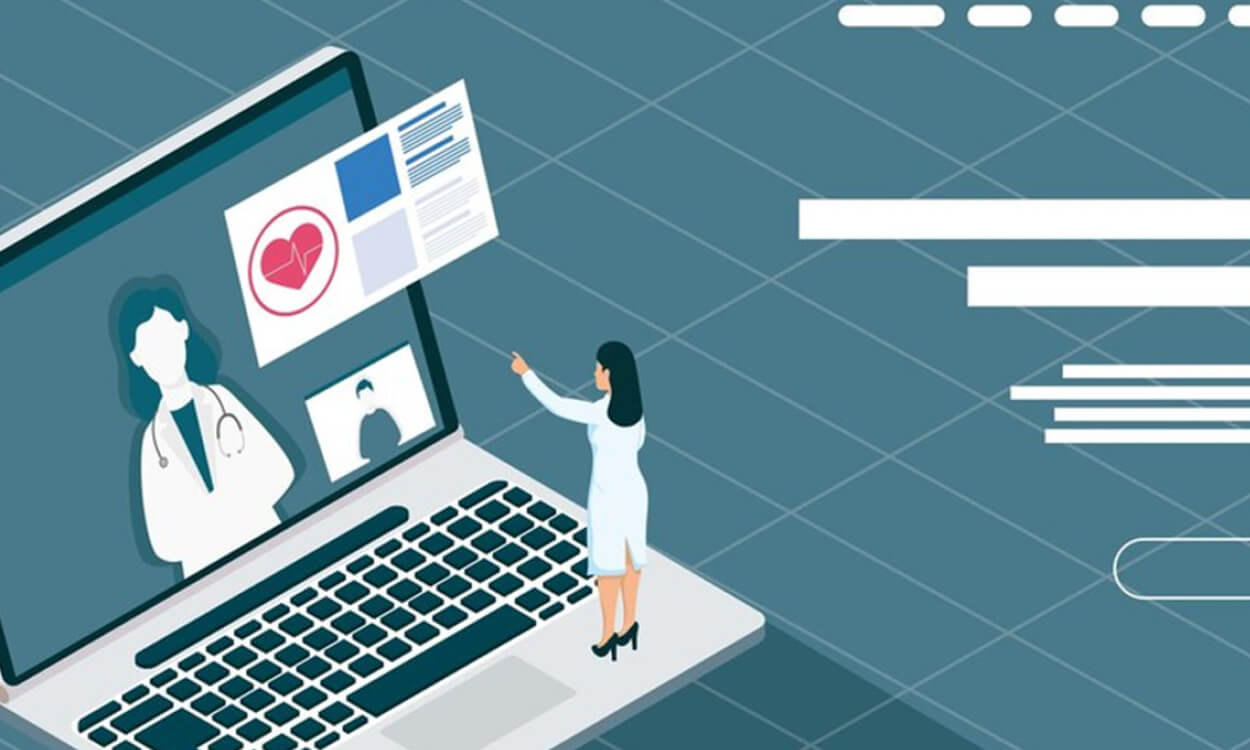How Custom Software Improves Efficiency Of the Healthcare Industry.
May 1, 2024
Patient care has a considerable impact on the people being treated and society as a whole.
With new developments available to healthcare organizations and facilities, there is a growing collaboration between humans and technology. The software automates monotonous procedures while improving data privacy and accessibility, allowing healthcare personnel to focus on what is most important: patient care.
This article will look at the benefits of healthcare software, how it may transform patient care, and how your business can develop its software to improve patient outcomes.
Types Of Custom Software Development in the Healthcare Sector
Healthcare bespoke software development is crucial since it has emerged as a critical driver of innovation. Unlike off-the-shelf solutions that provide generic functionality, custom software is created with healthcare organizations’ specific needs and workflows in mind.
A custom-made software solution bridges the intricacies of healthcare operations and the accuracy of technology, solving the specific issues that healthcare practitioners and managers encounter.
Operational Softwares
Billing and Payment Systems
Make it easier for patients to pay their expenses. This will lower administrative costs, decrease errors associated with manual data entry, and give patients more straightforward and accessible billing information.
Electronic Health Records (EHR) and Data Centralization
It refers to combining medical histories, treatment plans, lab findings, and other information into a centralized digital format. This eliminates the need for manual paper filing, lowering the risk of lost or misfiled records and allowing healthcare practitioners to swiftly retrieve accurate patient information when making clinical choices.
Automate repetitive tasks
Appointment reminders, medication renewals, and follow-up communications can be automated, allowing healthcare personnel to focus on more sophisticated patient care duties.
Appointment scheduling and patient registration
It allows patients to book appointments online and select convenient times, minimizing wait times and improving time management for healthcare practitioners and patients. 2.4% of healthcare appointments are booked online. Electronic registration forms can be filled out remotely, reducing the physical paperwork requirement upon arrival at the healthcare facility.
Prescription Management and Pharmacy Integration
It allows healthcare practitioners to email prescriptions directly to pharmacies, eliminating errors caused by illegible handwriting and accelerating medicine distribution. Integration between healthcare systems and pharmacies provides prescription information to be easily shared, improving medication safety.
Data Management
Centralized EHRs
It includes all the information about each patient, such as medical histories, test findings, imaging reports, treatment plans, etc. This data is handled and centralized in a digital format available to authorized healthcare providers and patients. The requirement for physical paper records has been abolished. As a result, the danger of data loss is reduced, while patient information can be retrieved quickly and accurately.
Interoperability
It enables seamless data sharing among healthcare systems, medical departments, and healthcare organizations. This allows healthcare providers to access patient information independent of the service environment. As a result, care coordination is better, and decisions are made with greater accuracy.
Real-Time Data
It is accessible to both patients and medical professionals. This capability is critical in emergencies where having fast access to precise patient information might be the difference between life and death. Real-time data availability improves patient safety while reducing the possibility of errors.
Data Analysis and Insights
It enables the analysis of massive amounts of healthcare data records to reveal patterns, trends, and correlations that provide insights into illness prevalence and treatment outcomes.
Telehealth Support
It allows healthcare practitioners to exchange patient records such as medical history, recent test results, and past treatment plans during telehealth consultations, resulting in better patient care.
Patient Care
Telehealth and Remote Consultations
It allows patients to have medical consultations from the comfort of their own homes. Telehealth systems provide video conversations, chats, and virtual visits, which are especially useful for people with limited mobility, those who live in distant places, or during pandemics when physical visits are difficult.
Health management with mHealth apps and wearable devices
It enables patients to control their health and wellness. They can track their physical activity, heart rate, sleep habits, and so forth. These apps offer personalized insights, allowing users to make informed decisions regarding their lifestyle and health habits.
Health Record Accessibility
It allows patients to access their records and test results via patient portals and mobile applications. This transparency improves patient-provider communication, encourages people to take responsibility for their health, and enables joint decision-making during medical visits.
Remote Patient Monitoring
It enables continuous monitoring of chronic patients using wearable gadgets, networked medical devices, and sensors that send real-time health data to healthcare practitioners. This allows for timely treatments, early diagnosis of problems, and changes to treatment plans, resulting in better disease management.
How Aascent InfoSolutions Can Help You Build Healthcare Solutions.
The healthcare industry is highly regulated, making it difficult for startups to break into the market. However, the rising demand for big data analytics and AI-powered solutions allows startups to compete with established firms. In conclusion, the demand for specialized healthcare software development is apparent.
Aascent InfoSolution, a healthcare software development business, offers tailored software development solutions for healthcare organizations, allowing them to harness cutting-edge technology and reach a larger market more quickly. Our services are top-notch, with user-friendly procedures and reusable code blocks known as technology extensions that help healthcare firms stay competitive. Contact our experts now to help define the future of healthcare.
Wrapping It Up
Providing tremendous and effective customer service to patients can benefit healthcare businesses of all sizes and sorts. Custom software development companies assist healthcare sectors in enhancing performance and implementing innovative ideas, such as simplifying patient care, providing guidance, visualizing data, and creating cutting-edge web apps.
FAQs
What does a software developer perform in healthcare?
Software developers play an important part in the healthcare industry. They are in charge of creating, developing, and maintaining new medical devices, as well as managing the hospital's network and information technology infrastructure.
How much does it cost to build healthcare software?
There are various elements that influence the cost of producing healthcare software. As an organization, you must evaluate a variety of aspects, including project complexity, the amount of features and technologies involved, and location. Again, to obtain an approximate quote, please contact our experts and discuss your project.




